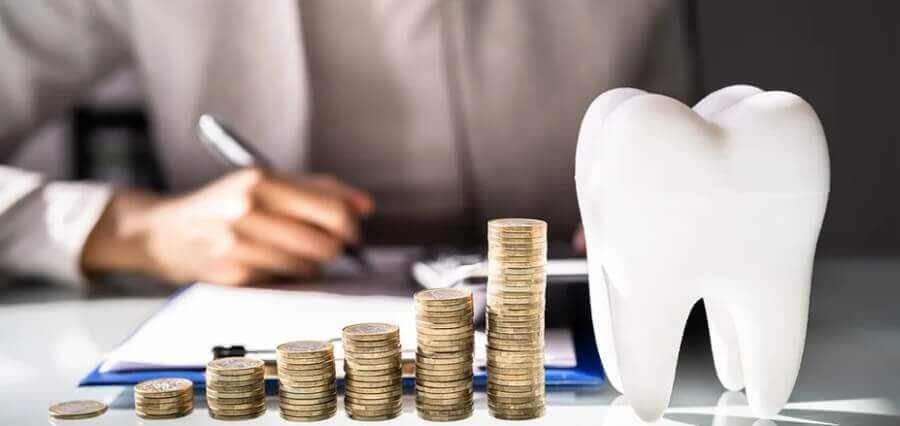Your trip to the dentist’s office is not one of your favorite things, but it can be even more painful if you have to pay a lot of money for dental care. Fortunately, based on your present credit standing and several other considerations, you have access to a variety of dental financing solutions that can help alleviate some of that strain. However, even if you have dental insurance, most plans have a yearly benefit maximum that the insurance company will pay out, which means that you may still be responsible for paying some of the costs out of cash.
You may be interested in dental financing if you cannot pay for crucial dental care up front due to financial constraints. But if you have poor credit, it may not be easy to get authorized for many different types of credit, and even more challenging to obtain an interest rate and conditions you can afford to pay back if you get approved for credit.
Types of Dental Financing
Personal loan
It is possible to use the funds from a personal loan to pay for various expenses, such as dental work or other medical treatments. These loans are often considered unsecured, indicating that the lender does not require any form of collateral to secure the loan. Because of this, the lending institution will typically look at various criteria, like your credit history and credit scores, to assess whether you can repay the loan.
It is also crucial to note that some lenders may only offer loans for cosmetic dentistry, so before you go shopping, you should make sure that you clearly understand how your surgery is categorized.
If your credit score is low, you run the risk of having to pay higher interest rates on whatever loan you take out or maybe being turned down for a loan entirely. If you think getting a loan may benefit you, you should educate yourself on the steps involved in the application process.
Medical credit cards
A standard credit card is quite similar to a medical credit card, but a medical credit card is only used to pay for healthcare. You can only use a medical credit card to pay for healthcare and only within a restricted network of providers who accept the card as payment. Credit cards geared explicitly toward medical expenses, such as dentistry, may be obtained to cover the cost of medical services.
You can use your medical credit card to pay for approved medical and dental expenses. If you apply for a secured credit card, the issuer will likely look at your credit history like any other credit card. After that, you’ll have a debt to the credit card company and must make payments to it. Several medical credit cards may come with an interest-free or low-interest period. You will not have to pay any interest on the sum if you can pay it off during the grace period allotted by the financial institution.
However, if you cannot repay the balance within the specified time or make a payment more than one day late, you may be required to pay the total interest accrued since you first borrowed the money. Before applying for a medical credit card, you should consider whether or not this course of action is the best for you. This is because, if you carry a balance from month to month, the interest you accrue could result in your treatment costing significantly more than you initially anticipated.
Intro 0% APR credit card
It would be best if you considered paying for your dental procedure with a standard credit card rather than a medical credit card. There are conventional credit cards that, for a predetermined period, offer a promotional 0% APR on purchases and balance transfers. The card will have an APR based on your credit and other variables once the introductory period has ended. However, you should be aware of potential risks when using a credit card to pay off a significant sum.
If you can pay off the amount you owe within the set time frame, which is typically between 12 and 21 months, you will not be charged any interest on the financing you have obtained for your dental care. However, you run the risk of having to pay interest on any amount of the sum that you are unable to pay off before the end of the promotional period. Additionally, if you don’t repay according to the card terms, you risk losing your promotional APR.
Dental Financing FAQs
What can be covered by dental loans?
Even if you have dental insurance, you may still be responsible for paying a portion of the overall cost, particularly if you are enrolled in a plan with a high deductible. This is especially the case if you have a high-deductible plan. Don’t forget that you must pay your deductible before your insurance coverage takes effect. A wide variety of procedures are eligible for funding through dental financing.
What do you need to consider when selecting a dental loan?
Selecting the most refined personal loan for your dental needs is similar to choosing any other loan. In general, selecting the loan with the lowest annual percentage rate (APR) is advisable, which combines the interest rate and any costs. Here are some additional factors you should consider: customer service, funding time, and length of the term.
How do you get dental financing?
The vast majority of dentists, particularly those specializing in aesthetic dentistry, make payment plan options available. This may be a financing plan offered in-house by the dentist herself or through a lender with whom the dentist has partnered. Check with your dentist’s office to find out what payment options they have available.
You can also apply for a dental loan with a third-party lender located in a different location. Loans for dental work are available from many of the same sources as personal loans, such as financial institutions, banks, credit unions, and online lenders. Even if the dental office you go to has its in-house financing option, it is still in your best interest to look around at other options and see if you can find better rates elsewhere.














